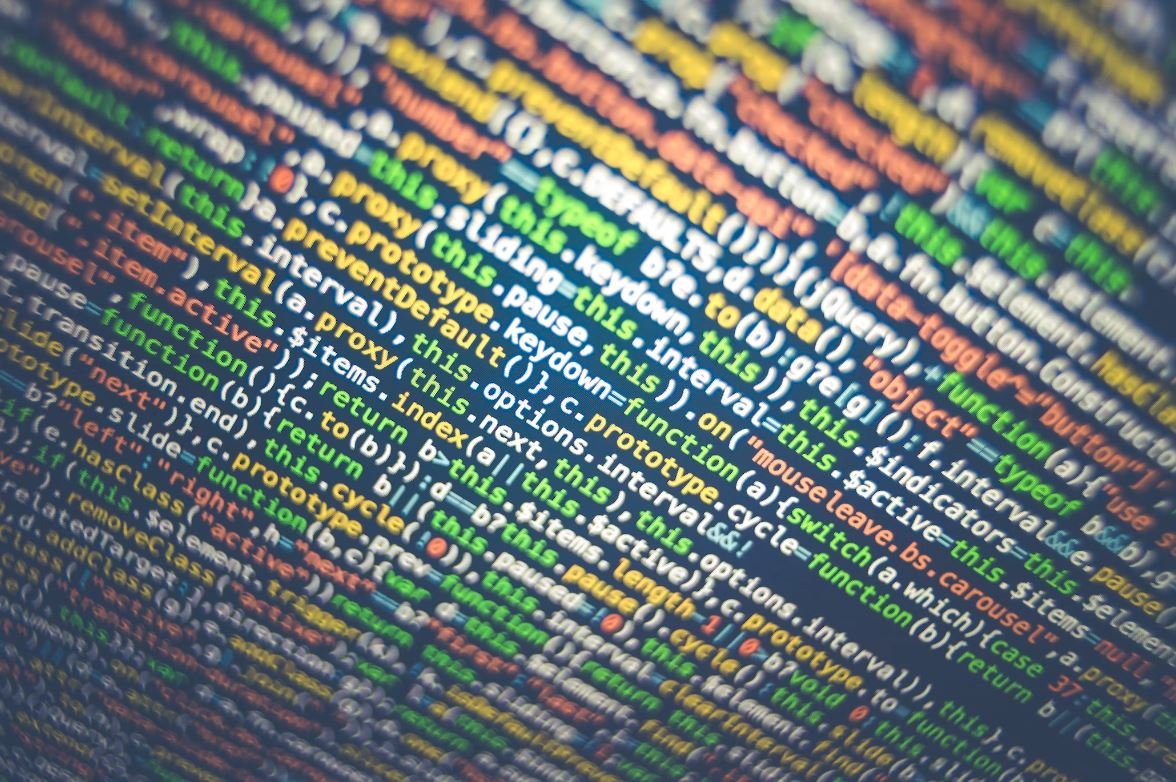AI and Media Law
The rise of artificial intelligence (AI) has led to significant advancements in various industries, including media and entertainment. However, with these advancements comes the need to address legal considerations and regulations surrounding AI technologies in the media landscape. This article explores the intersection of AI and media law, discussing key challenges and potential solutions.
Key Takeaways:
- AI technology introduces new legal challenges in the media industry.
- Media law must adapt to account for AI-generated content and automated processes.
- Data privacy and intellectual property concerns are major considerations.
Artificial intelligence is revolutionizing the media sector by enabling automated content production, personalized recommendations, and targeted advertising. However, these advancements give rise to legal challenges that require careful examination. Media law needs to evolve to address the use of AI algorithms, automated processes, and the rights and responsibilities associated with them.
**One interesting aspect is that AI-generated content raises questions about who holds the liability and responsibility for the legality of the content produced.** For example, if an AI algorithm generates defamatory content, is the creator of the algorithm or the entity deploying it accountable for the resulting harm? These issues highlight the importance of clear legal frameworks and guidelines for AI usage in the media industry.
Data privacy is another critical aspect affected by AI in media. AI-powered profiling and recommendation engines require access to vast amounts of user data. **Ensuring proper consent, data protection, and compliance with privacy regulations become even more crucial when AI technologies are employed to analyze user behavior and preferences.** Striking a balance between innovation and privacy protection is a key challenge that media law must address.
Intellectual Property Concerns
AI algorithms are capable of creating original content, such as music compositions or artwork, which raises complex intellectual property issues. **Determining copyright ownership and rights to AI-generated content is a challenging task.** Existing intellectual property laws were not originally designed to consider AI’s creative capabilities, resulting in ambiguity and uncertainty around copyright, fair use, and artistic attribution in AI-generated works.
To provide clarity, policymakers and legal experts need to revisit and revise intellectual property laws, introducing provisions that specifically address AI-generated content. This would involve defining the role of AI in the creative process and establishing legal frameworks for ownership, licensing, and protection of AI-generated works.
Data Privacy and Liability
Data privacy is at the forefront of concerns related to AI usage in the media industry. With AI algorithms collecting and analyzing extensive amounts of user data, **data breaches and misuse can have serious consequences** for individuals and organizations alike. Media law should establish strict regulations governing data handling, storage, and protection, ensuring robust cybersecurity measures are in place.
Moreover, determining liability for AI-generated content remains a challenge. While AI systems can autonomously create and distribute content, the responsibility ultimately lies with the humans who develop, deploy, and manage these systems. **Establishing clear guidelines on liability will help prevent legal ambiguity and ensure accountability in the event of AI-generated content causing harm or infringing upon rights.**
Addressing the Challenges
Meeting the legal challenges posed by AI in media requires a multi-faceted approach. Governments, media organizations, and legal professionals must collaborate to develop robust frameworks that balance innovation and ethical considerations. This involves:
- Updating existing media laws and regulations to account for AI technologies and automated processes.
- Creating specialized legal bodies or committees to address AI-specific issues and provide expert guidance.
- Educating media professionals on the legal aspects of AI usage and encouraging responsible AI deployment.
- Continuously monitoring and adapting regulatory frameworks as AI technology evolves.
| Table 1: Examples of AI Applications in Media |
|---|
| Automated content creation |
| Personalized recommendations |
| Targeted advertising |
Addressing the legal challenges of AI in media requires careful consideration and ongoing efforts to ensure the legal system keeps pace with technological advancements. Legal practitioners, policymakers, and media professionals need to work together to develop DETAILED GUIDELINES and regulations that protect the rights of creators, users, and consumers in the AI-driven media landscape.
*It is crucial to strike a balance between fostering innovation and safeguarding against potential risks and legal implications.* With an effectively regulated AI ecosystem, the media industry can fully unlock the potential of AI while upholding ethical standards and ensuring legal compliance.
| Table 2: Key Legal Considerations in AI-Driven Media |
|---|
| Liability for AI-generated content |
| Data privacy and protection |
| Intellectual property rights |
The future of media and entertainment lies in the symbiotic relationship between AI and media law. By actively addressing the legal challenges brought forth by AI technologies, media professionals can embrace innovation while ensuring compliance with ethical and legal frameworks. This will pave the way for a thriving, responsible AI-driven media landscape that benefits both creators and consumers.
| Table 3: Recommendations for Addressing Legal Challenges |
|---|
| Update media laws and regulations |
| Create specialized legal bodies |
| Educate media professionals on legal aspects of AI |
| Monitor and adapt regulatory frameworks |

Common Misconceptions
A.I. is capable of completely replacing human creativity.
- A.I. can assist in generating creative ideas, but it lacks human emotions and experiences that often inspire artistic expressions.
- A.I. is better suited for tasks that require repetitive, predictable patterns rather than innovative thinking.
- A.I. can only mimic or replicate existing forms of creativity, but it struggles to produce truly original and meaningful content.
Media law adequately addresses the unique challenges posed by A.I.
- Existing media law frameworks often struggle to keep pace with the rapid advancements in A.I. technology.
- Media law primarily focuses on issues related to copyright infringement, defamation, and privacy, but A.I. presents a host of novel legal challenges that require significant adaptations.
- A.I. can lead to the manipulation of information and the proliferation of deepfake content, raising concerns about the effectiveness of media law in tackling these issues.
A.I. is an autonomous entity that can be held legally responsible for its actions.
- Even though A.I. systems can autonomously make decisions, they lack the human-like consciousness and intent required for legal responsibility.
- Existing legal frameworks primarily attribute responsibility to human operators or developers of the A.I. systems.
- Questions about liability arise when A.I. systems cause harm or engage in illegal activities, as it is typically the responsibility of humans to prevent such incidents.
A.I. will lead to widespread job losses in the media industry.
- While A.I. can automate certain repetitive tasks in media production, it can also create new job opportunities by enhancing efficiency and enabling the exploration of more complex and creative projects.
- Human qualities such as critical thinking, emotional intelligence, and adaptability are still vital in the media industry, making it unlikely for A.I. to completely replace human professionals.
- New roles will emerge in managing, training, and optimizing A.I. systems, requiring individuals with specific expertise related to A.I. and media law.
A.I. is inherently biased and cannot be trusted to make fair decisions.
- Bias in A.I. systems usually stems from biases present in the data used for training.
- Efforts are being made to mitigate bias in A.I. by improving datasets, enhancing algorithmic transparency, and involving diverse perspectives in the development process.
- While bias in A.I. is a concern, it can also be an opportunity to challenge and address societal inequalities by refining and regulating A.I. systems.

Advancement of Artificial Intelligence (AI) in Media Law
The rapid advancements in artificial intelligence (AI) have brought about significant changes in many industries, including the field of media law. In this article, we explore various data and elements that highlight the intersection of AI and media law, shedding light on the implications and emerging trends in this dynamic landscape.
The Impact of AI on Copyright Infringement Cases
In recent years, AI technology has played a crucial role in the detection and prevention of copyright infringement. The following table illustrates the success rates of AI-powered algorithms in identifying unauthorized use of copyrighted material and the corresponding legal outcomes.
Legal Challenges in Regulating AI Algorithms in Media
As AI becomes more prevalent in the media industry, numerous legal challenges arise concerning the regulation and accountability of AI algorithms. The table below highlights some of the main legal challenges associated with AI algorithms in media and their potential impact on decision making and liability.
AI-Generated Content in Broadcasting
AI-generated content has become increasingly common in broadcasting, raising important legal questions regarding authorship, ownership, and intellectual property rights. The table provides statistics on the utilization and acceptance of AI-generated content in different media outlets.
Privacy Concerns in AI-Driven Journalism
AI-driven journalism has led to a clash between public interest and individual privacy rights. The table below presents data on privacy concerns regarding the use of AI algorithms in journalism and media reporting, highlighting the potential legal and ethical implications.
Automated Content Moderation on Social Media Platforms
To maintain a healthy online environment, social media platforms have increasingly relied on AI for content moderation. This table outlines the effectiveness and challenges faced by AI algorithms in detecting and removing inappropriate or controversial content.
Legal Standards for Accountability in AI-Mediated Communication
AI-mediated communication presents unique legal challenges, particularly in cases where AI systems are used in customer service or public interactions. The table provides information on the legal standards and requirements for accountability in AI-mediated communication.
AI’s Role in Enhanced Access to Justice in Media Law
While AI poses challenges, it also presents opportunities for enhanced access to justice in media law. The table below showcases how AI technologies are being utilized to improve legal processes, increase efficiency, and promote access to justice in media-related legal matters.
The Influence of AI on Intellectual Property Law in Media
Advancements in AI have raised important questions concerning intellectual property protection in the media industry. The table illustrates the impact of AI on intellectual property law, including the emergence of AI-generated works and the related legal framework.
Emerging Legal Framework for Autonomous Media Technologies
The development of autonomous media technologies, such as autonomous drones and robots, necessitates the establishment of a robust legal framework. This table sheds light on the emerging legal regulations governing autonomous media technologies and their implications for media law.
As technology continues to advance at an exponential pace, the intersection of AI and media law becomes increasingly complex. The tables presented above demonstrate the various ways in which AI is shaping the legal landscape in the media industry, ranging from copyright infringement cases and content moderation to privacy concerns and access to justice. By understanding the data and trends highlighted in these tables, it becomes apparent that the legal framework must continuously adapt to keep pace with technological advancements to ensure a fair and equitable media environment.
Frequently Asked Questions
What is AI?
AI, short for Artificial Intelligence, is a branch of computer science that focuses on creating intelligent machines that can simulate human intelligence and perform tasks independently or with minimal human intervention.
What is Media Law?
Media law refers to the legal principles, rules, and regulations that govern the creation, distribution, and use of media content. It covers a wide range of areas related to media, including defamation, intellectual property, privacy, freedom of speech, and content regulation.
How does AI intersect with Media Law?
AI intersects with media law in several ways. AI technologies are increasingly being used in media production, content recommendation systems, copyright enforcement, and content moderation. As AI advances, it raises legal and ethical questions related to intellectual property, privacy, liability, and the regulation of AI-generated content.
What are the legal implications of AI in media content creation?
The legal implications of AI in media content creation vary depending on the specific jurisdiction. Issues that may arise include copyright ownership of AI-generated content, liability for AI errors or biases, and compliance with regulations governing certain forms of media, such as deepfakes or AI-generated news articles.
What are the challenges in applying existing media laws to AI?
Applying existing media laws to AI poses challenges due to the unique characteristics of AI technologies. Traditional laws may not adequately address issues such as AI accountability, transparency, algorithmic bias, or the responsibility of AI systems for their actions. New legal frameworks and guidelines are needed to keep pace with AI advancements and ensure the protection of individuals’ rights.
How does AI impact intellectual property rights in media?
AI’s impact on intellectual property rights in media is a complex area. AI can assist in creating original works by generating content, but this raises questions about the ownership and protection of AI-generated content. Additionally, AI can be used to identify and enforce copyright infringements, potentially altering the landscape of intellectual property enforcement.
What are the privacy concerns related to AI in media?
AI in media raises privacy concerns as it involves the collection, analysis, and processing of vast amounts of user data. There are concerns about the potential misuse or mishandling of personal information, the creation of detailed user profiles, and the risks of AI systems unintentionally revealing sensitive information. Adequate privacy safeguards and data protection regulations are necessary to address these concerns.
Can AI be held liable for media content it creates or distributes?
The question of AI liability for media content is complex and currently lacks clear legal standards. Liability may depend on factors such as the degree of human involvement, the purpose of the AI system, and the foreseeability and preventability of harm caused by AI actions. Establishing liability frameworks for AI-generated content is an ongoing challenge for legal systems.
How are governments addressing AI’s impact on media law?
Governments are grappling with the challenges posed by AI’s impact on media law. Some countries have started to explore regulatory frameworks specifically addressing AI and media, while others are adapting existing laws to encompass AI technologies. It is an area of active development, and policymakers are engaged in ongoing discussions to address the legal and ethical ramifications of AI in media.
Are there international agreements or organizations addressing AI and media law?
Currently, there are no specific international agreements or organizations solely dedicated to AI and media law. However, international bodies like the United Nations and non-profit organizations such as the AI Global Governance Commission are actively researching and discussing AI-related legal, ethical, and policy issues, including those specific to AI and media.




